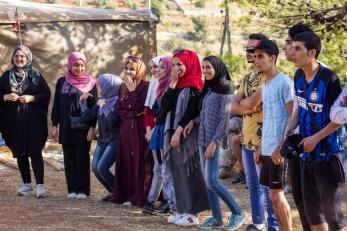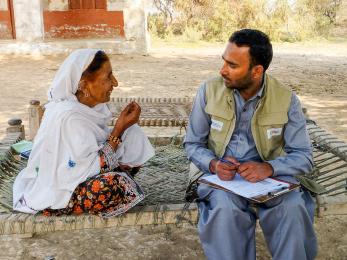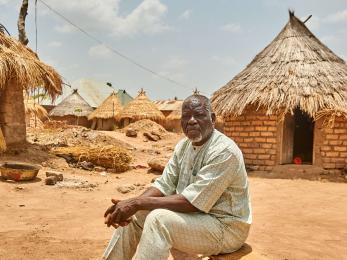What Works and What’s Next for Social Stability in Jordan?

Evidence from Mercy Corps’ Host-Refugee Social Cohesion Program
The Syrian refugee influx into Jordan has heightened risks of conflict and insecurity in what has long been considered a bastion of stability in the region. While billions in aid have gone toward strengthening social cohesion in Jordan and the region, few of these investments have shown evidence of effectiveness towards stability-related outcomes. Mercy Corps’ recent impact evaluation of our long-standing UKAid-funded conflict management program in Jordan contributed to filling this gap.
Our research presents rigorously and independently produced evidence that our program had a strong, positive, impact on social cohesion and stability between hosts and refugees. We saw the greatest impacts when we reached communities with both ‘hardware’ projects that reduced competition over public services and ‘software’ activities that boosted positive interactions between groups.
Based on this research, we are able to recommend that donors and governments replicate and scale our program model within Jordan and similar contexts. Specifically, to invest in approaches to social stability that: a) provide immediately visible benefits, such as dispute resolution, b) address systemic drivers of conflict, such as degraded infrastructure, and c) respond to emerging sources of instability, including deteriorating citizen-state relations.

